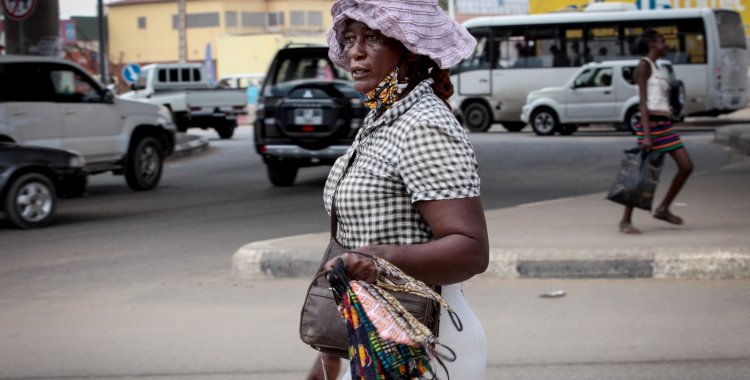One of them is Chitunda Sapalo, a small entrepreneur in the fashion business who, since the state of emergency was decreed on March 27, due to the pandemic of the new coronavirus, dedicates himself to the making of artisan masks in Luanda.
"We suspended our work of making clothes and began to dedicate ourselves to the manufacture of cloth masks, with our own means," says Chitunda Sapalo, in statements to the Lusa agency.
Altruistically, the young Angolan entrepreneur, owner of a space with only one sewing machine, began by producing 50 masks, with material he acquired with his money in one of Luanda's warehouses.
The masks were distributed by him and his partner, free of charge, in the communities where he lives.
"At the moment, we need raw material, specifically cloths and machines, to be able to produce 250 masks daily for the State, which in turn will take care of its distribution," he says.
Asked how he learned to make the masks, he answers that he bought a surgical mask in a pharmacy, took the mold and started producing.
According to Chitunda Sapalo, the African cloth mask "is effective because it allows citizens to wear it several times, for one or two months".
"When he goes to the street and comes home he must wash it and then iron it to kill the virus, avoiding taking the inside of the mask and only the end," he explains.
Still on the effectiveness of the masks, the businessman says he did a test with the African fabric, simply by putting on the mask and blowing into a lighter in front.
"If the light of the lighter doesn't move or go out, it's because the mask is effective and if it goes out, it's not effective. Our African cloth is effective for the protection of covid-19", he assures.
Chitunda Sapalo says the population in her neighborhood "wants more masks", but due to the lack of material they are standing still.
"We want to be here, day and night, working on the production of masks, to help the state in this struggle of covid-19," he says, recalling that if "the state is collapsing, in financial terms, the citizen even more, because the number of unemployed is large.
With available material, the young entrepreneur guarantees that he has the capacity to produce 250 masks daily, making in seven days almost 1,800 masks, "which is satisfactory for some communities here in the capital of Angola.
For the distribution of the masks, they intend to collaborate with the administrations of the municipalities of Kilamba Kiaxi and Talatona, if they can get fabrics and more sewing machines.
The people responsible for selling the masks are mainly women 'zungueiras' (street vendors), who buy the product in the Kikolo market, on the outskirts of Luanda, selling at a price that varies between 100 and 200 kwanzas.
Filomena Patrício started selling these masks two weeks ago "because the disease is in Angola, and for people to protect themselves.
The 'zungueira' sells 50 or 100 masks daily, which it buys at a price of 50 kwanzas and 100 kwanzas.
Fernanda Maria and Marlene Victor, both 'zungueiras', also buy the masks at Kikolo, where before the current business they sold toothpaste, slippers and underwear for women and men.
Fernanda Maria says she sells between 20 and 25 masks a day, earning three kwanzas, which are used to buy food.
Marlene Victor, on the other hand, says that she buys two types of masks at Kikolo, one for 150 kwanzas and the other for 100 kwanzas, whose difference is the shape: one shaped like a dog's snout and the other right.
Marlene Victor confesses that the demand for the masks was higher in the first days, "but now it has decreased" and Fernanda Maria says that the biggest concern of the customers is whether the masks are already treated.
João da Silva, one of Filomena Patrício's customers, was protected with a surgical mask, but bought the African cloth masks to protect his family.
"I bought this one in order to protect my children, because this surgery is very expensive and hard to come by," says João da Silva to Lusa, recalling the need to protect his family, as he leaves home every day to look for food.







